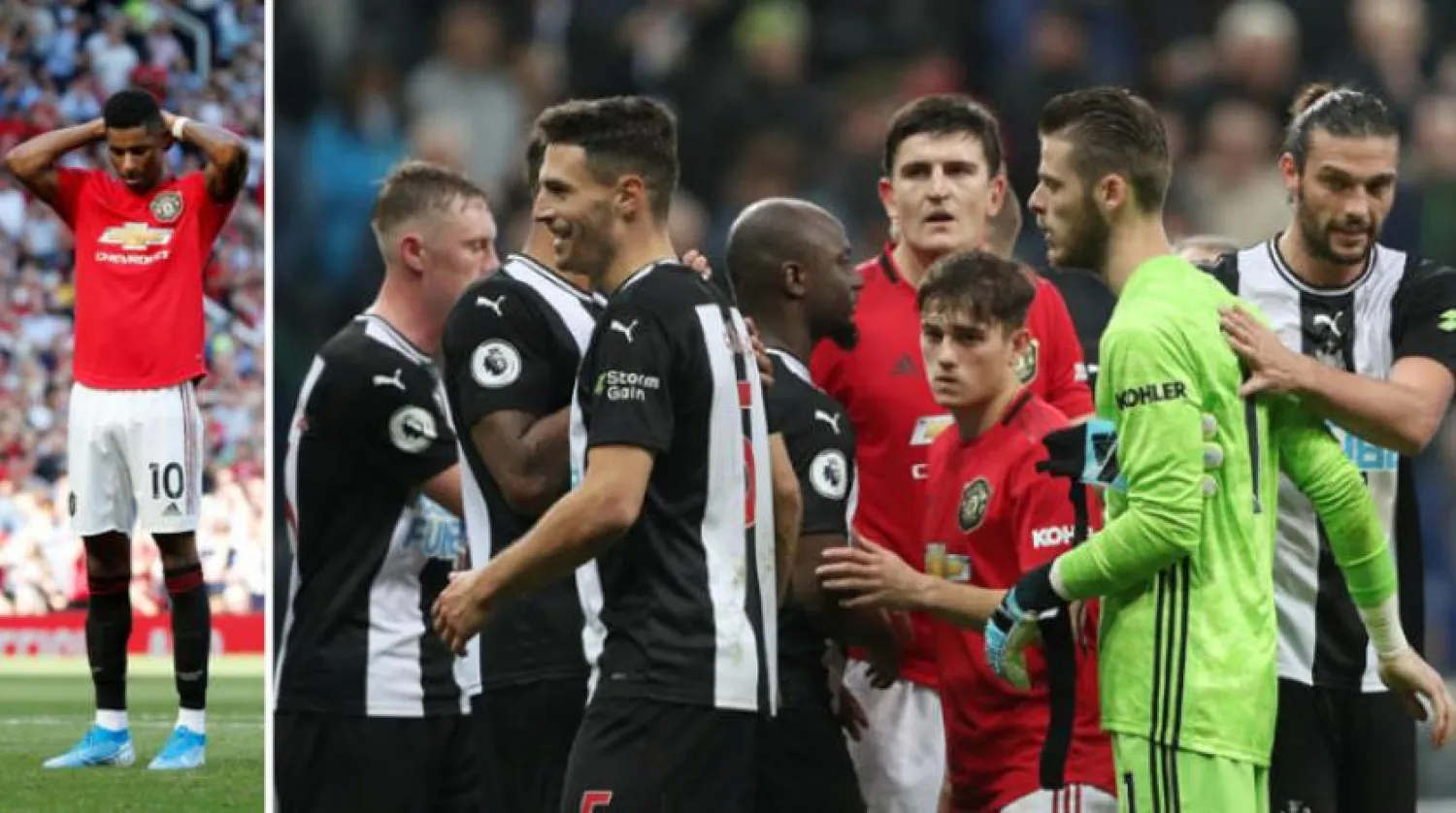Where does this rank in the litany of dreadful Manchester United performances? Not quite as bad, perhaps, as the equivalent game of the 1989-90 season, the last to start as badly as this, when in their eighth match they went down 5-1 at Manchester City. And not as bad, probably, as the 5-0 humbling at Crystal Palace in December 1972 that brought an end to Frank O’Farrell’s term as manager. But this was bad – bad enough that it is challenging for the post-war podium.
Ole Gunnar Solskjær’s mood after the game was reasonable and sad, but also vaguely numb as though he were in shock. There was no obvious anger, no great emotion, just a struggling man clinging desperately to the pat phrases of his profession: belief in the tactics, the need to work harder, perhaps a tweak before the game against Liverpool after the international break. But this needs more than a tweak; this needs a revolution, not only of tactics but of morale and self-belief – and probably personnel.
United are sleepwalking to something perhaps inconceivably bad. This is ineptitude on an extraordinary scale. Given all the advantages that wealth gives the top clubs in the modern age, given the insulation they enjoy from serious consequences, given United are both the most successful side in league history and the richest club by revenue in the country, it is staggering that at this stage, more than a fifth of the way through the season, they should lie just two points above the relegation zone, appalling they could produce a performance so devoid of quality, of enthusiasm, of a plan.
Clearly Solskjær is not the biggest problem at United. Clearly any coach coming in would face enormous difficulties. Clearly this is a club suffering systemic decay. And yet Solskjær is equally clearly now a problem. The week after United won away against Paris Saint-Germain in the Champions League, Louis van Gaal, in his typically pugnacious way, dismissed him as being “another Mourinho” who relied on the counterattack. Time has proved him right: Solskjær is not somebody, it seems, capable of constructing attacks as modern football demands.
Now that the initial surge of enthusiasm at José Mourinho’s departure has passed, now that opponents know that they cannot leave space in behind them, now that so many of those flyers have succumbed to muscular injuries as to raise questions about United’s training, Solskjær’s shortcomings are being brutally exposed. His 17 league games since that PSG match have yielded just 17 points; Mourinho’s last 17 games before his dismissal brought 26.
United mustered three shots on target at St James’, which at least is three more than they managed away to AZ last Thursday. This, it is true, was a Newcastle rejuvenated by Steve Bruce’s acceptance of his players’ limitations and refashioned accordingly into the sort of solid 3-4-3-cum-5-4-1 that served Rafa Benítez so well. But still, it was Newcastle. A Newcastle with two local brothers in the heart of midfield who had started 12 Premier League games between them. A Newcastle that had won just one game this season. A Newcastle with a disillusioned fan base in revolt. A Newcastle that had lost their previous game 5-0. A Newcastle with a manager who had failed to win in 21 previous games against United.
This was a Newcastle that, back-to-basics approach notwithstanding, were there for the taking. The discussion around Bruce already had the tone of the end of an era. An early goal might have precipitated a collapse like that in the second half at Leicester last week. And yet United were impotent.
Marcus Rashford, perhaps the only player in history on whom the England shirt weighs lighter than his club kit, mustered just 21 touches in the game, four fewer than Marcos Rojo, who only came on in the 59th minute. Juan Mata, the notional midfield creator, had two touches in the final third. The two wide forwards, Daniel James and Andreas Pereira, managed just five crosses between them; none found their target. United’s past 23 games in all competitions have brought just 19 goals.
The grand new idea of the summer was to focus on youth. Which is fine, laudable even, but youth itself is not a plan. There needs to be a structure, a pathway for them. They need to be joining a club that can encourage and nurture them, rather than throwing them into the storm-tossed water and seeing if by some miracle they can swim. What has happened to Rashford, his reduction over the past two seasons, from bright young thing to frustrated shadow, should be a warning. The casualties of this crisis will not just be Solskjær or Ed Woodward.
For United fans there is no obvious way out, merely the sorry consolation that what they are witnessing is not merely awful, but historically so.
The Guardian Sport









